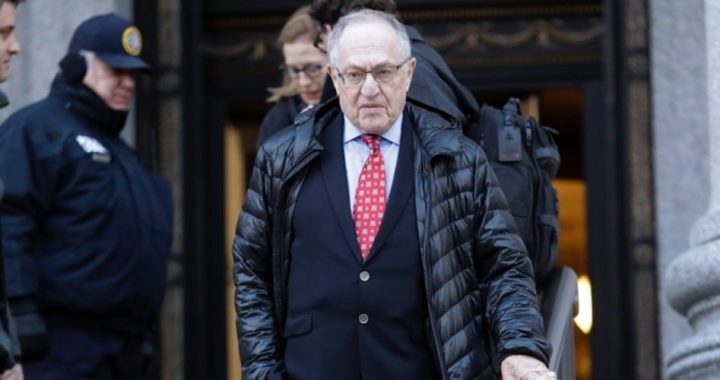
In an appearance on Newsmax Now, Alan Dershowitz, a well-known law professor and noted Democrat, reacted to the appearance this past week of Attorney General William Barr before the Senate Judiciary Committee by saying that Barr was right not to have charged President Donald Trump with obstruction of justice.
“What’s most important is that Barr is 100 percent right on obstruction of justice and [Special Counsel Robert] Mueller is 100 percent wrong,” Dershowitz explained. “You can’t convict a president, or charge a president with obstruction of justice, for engaging in a Constitutionally authorized act such as firing [former FBI Director] James Comey.”
Mueller’s letter to Barr expressing concern over how his report was portrayed by Barr was irrelevant, Dershowitz said. “We can all read the letter, we can all read the report and decide for ourselves,” Dershowitz said.
After Mueller’s nearly two years of investigations into alleged Russian involvement in the 2016 presidential election, Mueller concluded that there was no collusion between the Trump campaign and the Russians. But Mueller refused to offer a conclusion on whether Trump committed obstruction of justice during the investigations — considering that there was no underlying crime, it is difficult to see how Trump could have obstructed anything, since the crime of obstruction involves covering up evidence of a crime.
And since Mueller did not come to a conclusion on obstruction, that means he concluded that there was insufficient evidence to charge Trump or anyone else in his administration with obstruction. It is unusual, to say the least, for a prosecutor to announce that he has not found evidence of a crime against someone, but, of course, it was also unusual for the FBI director, then James Comey, to announce there is not evidence of a crime in the Hillary Clinton e-mail scandal. That would be like a police chief calling a press conference, instead of simply turning over his findings to the district attorney.
“You can’t indict a sitting president for doing what he’s supposed to do: pardoning, firing, or anything else that’s authorized by the Constitution,” Dershowitz added. “So, Barr wins and Mueller loses.”
Dershowitz further explained that Barr is “a Cabinet member. He’s supposed to protect the president. He’s supposed to help him get elected next time. He’s just like the secretary of state. He’s just like the secretary of the treasury. He works for the president, he’s part of the administration.”
And, as such, he serves at the pleasure of the president of the United States.
Dershowitz has been a long-time frequent critic of the selection of special counsels, alternatively known as special prosecutors or independent counsels. Although a partisan Democrat, Dershowitz has defended Republicans as well as Democrats, and has defended President Trump, though he has made it clear that he does not agree with many of Trump’s political positions.
“We never needed a special counsel,” Dershowitz told Fox and Friends last year. “All of this could have been done through the Justice Department, regular lawyers. You don’t need to bring in a multi-million-dollar group of people with a target on the back of specific individuals. That’s not the way justice should operate.”
Dershowitz has been arguing for months that Mueller was trying to turn constitutional actions by the Trump White House into criminal actions. “The president is entitled to fire the head of the FBI,” Dershowitz has repeatedly insisted. “The president is entitled to direct his attorney general who to investigate, who not to. I don’t see that the prosecutor should have a right to turn a constitutionally protected act of the president into a crime by speculating on what his motive might have been.”
Congress has been granted certain powers and privileges in the Constitution, and so has the president. In Article II, Section 2 of the U.S. Constitution, it is clearly stated that the president shall have the power to appoint “other officers of the United States, whose appointments are not herein otherwise provided for, and which shall be established by law.” In other words, the selection of a Special Counsel was not properly made by Assistant Attorney General Rod Rosenstein, nor even by the attorney general himself, Jeff Sessions at the time. Any such appointment was actually within the constitutional jurisdiction of the president of the United States — Donald Trump.
Oversight of the executive branch is properly in the hands of the legislative branch, rather than in the hands of a special counsel using a grand jury in a judicial district in which the president garnered less than 10 percent of the vote. If the public believes that members of Congress overstep their bounds in this process, then voters can punish them at the ballot box.
Perhaps that will happen next year, as President Trump will be up for reelection, along with a third of the Senate, and all 435 members of the House of Representatives.
Photo: AP Images



